
Reformed Christianity, also called Calvinism, is a major branch of Protestantism that began during the 16th-century Protestant Reformation. In the modern day, it is largely represented by the Continental Reformed, Presbyterian, and Congregational traditions, as well as parts of the Anglican and Baptist traditions.

The Christian Reformed Church in North America is a Protestant Calvinist Christian denomination in the United States and Canada. Having roots in the Dutch Reformed Church of the Netherlands, the Christian Reformed Church was founded by Dutch immigrants in 1857 and is theologically Calvinist.
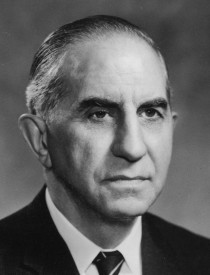
John Murray was a Scottish-born Calvinist theologian who taught at Princeton Seminary and then left to help found Westminster Theological Seminary, where he taught for many years. He was ordained in the Orthodox Presbyterian Church in 1937.
The United Reformed Churches in North America (URCNA) is a theologically conservative federation of Reformed churches founded in 1996. Many churches joined the URCNA after splitting from the Christian Reformed Church in North America denomination.
Westminster is an area within the City of Westminster, London, UK.
Meredith George Kline was an American theologian and Old Testament scholar. He also had degrees in Assyriology and Egyptology.

The Princeton theology was a tradition of conservative Reformed and Presbyterian theology at Princeton Theological Seminary lasting from the founding of that institution in 1812 until the 1920s, after which, due to the increasing influence of theological liberalism at the school, the last Princeton theologians left to found Westminster Theological Seminary. The appellation has special reference to certain theologians, from Archibald Alexander to B. B. Warfield, and their particular blend of teaching, which together with its Old School Presbyterian Calvinist orthodoxy sought to express a warm evangelicalism and a high standard of scholarship. W. Andrew Hoffecker argues that they strove to "maintain a balance between the intellectual and affective elements in the Christian faith."
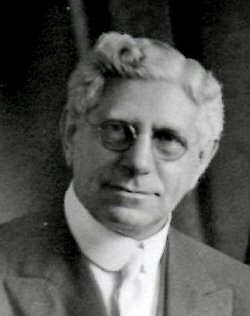
Louis Berkhof was a Dutch-American Reformed theologian whose works on systematic theology have been influential in seminaries and Bible colleges in the United States, Canada, Korea and with individual Christians in general throughout the 20th century.
Robert Scott Clark is an American Reformed pastor and seminary professor. He is the author of several books, including his most recent work, Recovering the Reformed Confession.
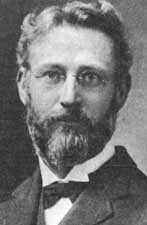
Geerhardus Johannes Vos was a Dutch-American Calvinist theologian and one of the most distinguished representatives of the Princeton Theology. He is sometimes called the father of Reformed Biblical theology.
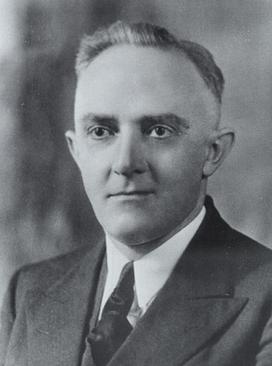
Rienk Bouke Kuiper was a pastor and professor of systematic theology. Kuiper served as President of Calvin College between 1930 and 1933.
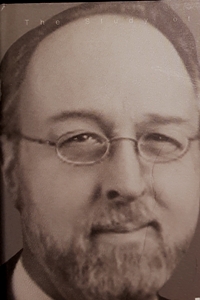
Richard A. Muller is an American historical theologian.
James Oliver Buswell, Jr. was a Presbyterian theologian, educator and institution builder.

Geneva Reformed Seminary is a small theological school in Greenville, South Carolina, accredited by the Association of Reformed Theological Seminaries and supported by the Free Presbyterian Church of North America. The seminary offers B.D. and M.Div. degrees. Initially called Whitefield College of the Bible after a companion school in Banbridge, Northern Ireland, the seminary was renamed in 2002 to avoid confusion in the United States where Bible schools and seminaries prepare students at different academic levels.

Joel Robert Beeke is an American Reformed theologian who is a pastor in the Heritage Reformed Congregations and the chancellor of Puritan Reformed Theological Seminary. Under the oversight of the Heritage Reformed Congregations, Beeke helped found Puritan Reformed Theological Seminary in 1995, where he served as president until he assumed the chancellorship in 2023. He teaches there as the professor of homiletics, systematic theology, and practical theology. Beeke has also taught as adjunct faculty at Reformed Theological Seminary and Grand Rapids Theological Seminary ; he was an adjunct professor of theology at Westminster Theological Seminary in Philadelphia, Pennsylvania, from 1993 to 1998; he lectured in homiletics at Westminster Seminary California in Escondido, California from 1995 to 2001; and he has lectured at dozens of seminaries around the world.
The Reformed Presbyterian Church in Taiwan was officially established in 1971 when the First Presbytery was formed as a result of the union of various conservative Presbyterian and Continental Reformed congregations planted by various missionary groups. Its origin could be traced back to the 1950s when the very first missionaries of those Presbyterian and Continental Reformed missionaries arrived in Taiwan.
Chad B. Van Dixhoorn, a Canadian-born theologian and historian, is the editor of the five-volume The Minutes and Papers of the Westminster Assembly: 1643-1652 published by Oxford University Press in 2012. In 2013 he was elected a Fellow of the Royal Historical Society in recognition of his work on the Westminster assembly. In 2014 Banner of Truth Trust published Van Dixhoorn's second work, Confessing the Faith: a reader's guide to the Westminster Confession of Faith.
Marten Hendrik Woudstra was a Dutch-born evangelical theologian, biblical scholar, seminary professor, and minister of the Christian Reformed Church. He served as president of the Evangelical Theological Society and as chairman of the Old Testament committee for the translation of the New International Version of the Bible. Woudstra's most notable contribution to evangelical scholarship is the publication of his commentary on the Book of Joshua in the New International Commentary on the Old Testament.









